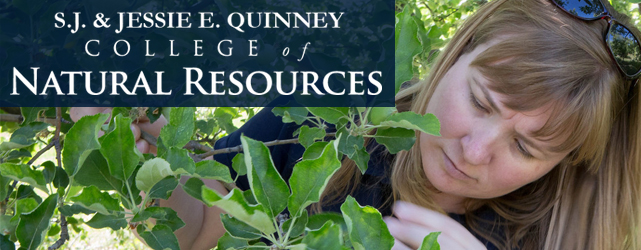Differential effects of defoliation by mopane caterpillars and pruning by African elephants on the regrowth of Colophospermum mopane foliage
Document Type
Article
Journal/Book Title/Conference
Journal of Tropical Ecology
Volume
25
Publication Date
1-1-2009
First Page
301
Last Page
309
Abstract
Plant responses to herbivory vary depending on herbivory type, yet the comparative effects of defoliation (e.g. by insects) and pruning (e.g. by large mammals) on a single tree species are poorly documented. We investigated this in the Northern Province of South Africa by comparing the regrowth of Colophospermum mopane trees previously defoliated by caterpillars or pruned by elephants, the two main browsers of C. mopane foliage. Shoots were up to 160% and 125% longer after natural (elephant) and simulated pruning and leaves ~25% longer in regrowth after natural pruning (n = 13–15 trees per treatment). Shoot density and chemical defences in leaves (tannin:protein ratio and total polyphenolic concentration) were, however, no different from control trees. Simulated defoliation resulted in statistically insignificant changes to regrowth in terms of leaf and shoot size (both slightly decreased) and shoot density (slightly increased). Natural (caterpillar) defoliation, however, resulted in regrowth with significantly decreased shoot and leaf size (about 50% and 20% of control lengths, respectively), as well as decreased leaf chemical defence. Shoot and leaf length were longer on trees flushing for the first time after pruning and late-season defoliation had a greater negative impact than mid-season defoliation. Despite the differences in regrowth characteristics after pruning and defoliation, mopane plants showed no apparent trade-off in investment between tolerance and resistance after either herbivory type, as neither regrowth nor chemical defence occurred at the expense of the other.
Recommended Citation
Hrabar, H., Hattas, D. & du Toit, J.T. 2009. Differential effects of defoliation by mopane caterpillars and pruning by African elephants on the regrowth of Colophospermum mopane foliage. Journal of Tropical Ecology 25:301-309





